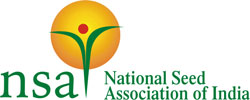India is blessed with diverse agro-climatic conditions, which can be harnessed for its potential to become a seed hub for several other countries. To achieve this purpose, the country needs to make investments in R&D and policies to create export opportunities.

The Indian seed industry has made rapid progress in the past 50 years. The seed industry has matured due to the efforts of thousands of seed men and women who have created a strong R&D base in our nation, giving us a competitive advantage in the production of quality seeds. India is endowed with diverse agro-climatic conditions, a high level of technological expertise, trained and skilled manpower, suitable land and abundant sunshine for agriculture. The country, therefore, has immense potential to emerge as the leading provider of seeds for the world. We can export seeds for sowing for all kinds of field crops, vegetable crops, forage crops and flowers.
However, considering the developments in terms of the new and emerging disruptive business operating models and processes aligned with innovative technology interventions, there is a need to invest in concrete initiatives for strengthening the Indian seed industry further as part of the “Aatmanirbhar Krishi”. The realisation of “Aatmanirbar Krishi” can only be possible by strengthening “Aatmanirbar Beej Udyog” (Self-Reliant Seed Industry), as seeds are the primary and fundamental input in agriculture.
The Indian seed industry as a sub-sector of the agri-inputs industry has been the most vibrant in terms of innovation and growth in the past 3-4 decades, contributing to a significant increase in the productivity and profits of farmers in India. The well balanced seed quality legislative framework in terms of the Seed Act, the New Seed Policy, 1988 and the National Seed Policy in 2002 gave a fillip to strong private sector participation on the foundations laid by public sector seed systems. However, much needs to be done in terms of further reforms and policy interventions to transform the Indian seed sector into a globally competitive industry.
The role of new technologies like molecular marker-based selection approaches to fast-track breeding programmes for developing new or superior plant varieties needs to be enhanced as an integral part of the seed industry. Biotechnological and molecular approaches can also improve the quality assurance systems in the seed industry. An emerging area which utilises biotechnology and nanotechnologies and can contribute significantly to the profits and productivity of farmers is that of seed treatments with biological inoculants, which can also be promoted on a large scale as a part of seed-applied technologies.
The Indian seed industry can also become a globally competitive, export-oriented and self-reliant industry, thereby, catering to global needs, especially for several Asian, African, East European and South American countries, which share similar agro-climatic conditions with India. With respect to international trade, most countries in the world allow seed imports subject to (a) import permit based on sanitary and phytosanitary certificates and (b) variety evaluation in the importing country to ascertain its suitability to agro-climatic conditions.
Currently, there are no significant export incentives available to the seed sector. The export potential for seeds from India is estimated at more than $5 billion per year based on various industry estimates. India can offer seeds for export to many countries with suitable sub-tropical and tropical agro-climatic regions in Asia, Africa, Eastern Europe, etc, at affordable prices, similar to the Indian pharma and agro-chemical sectors. The following incentives can help the Indian seed industry to tap in this potential:
Incentive to the extent of 20% of the seed value that is exported must be considered. In sectors like pharma and garments, there has been such an incentive available for a long time to encourage exports in the initial stages. However, in the seed sector, such incentives were never started. These incentives can be gradually brought down to 10% after 5 years. A provision of Rs 100 crore may be adequate for the next 5 years and Rs 100 crore for the next 6-10 years.
Reimbursement of the cost of variety evaluation in any foreign country is a progressive policy may consider as seed companies have to incur heavy expenses for variety evaluation which is a pre-condition for obtaining export orders. This expense needs to be reimbursed at least to the extent of 75% by the government. A provision of about Rs. 100 crore may be adequate for the next 10 years for meeting plant variety evaluation expenses for export purposes.
Seeds are the backbone of agriculture and the strength of an agrarian economy is pillared on good seeds. Indian seed manufactures are adding to the economies of the importing countries and helping them get more foreign reserves into the country. Hence, they should be rewarded with up to 30% subsidy.
India has lacked a seed export promotion council for a long time. The government under the trade and export promotion council should institute a seed export council headed by Indian industries and the government. This council will work to achieve the government’s mission, making seed exports amount to 10% of total agriculture exports.
India has three major seed hubs in the country. But given our vast agro-climate, we can produce seeds for African and ASEAN countries. The government needs to allow Indian and foreign seed companies to breed seeds for export purposes in special agro-zones. These zones may function like SEZs. They will need to be equipped with dry docks, good transportations, seed testing facilities, etc, to facilitate the swift export of seeds. A single window clearance counter can be established for fast tracking permissions.
An ‘Aatmanirbhar Krishi’ and a self-reliant seed sector need the SAARC markets and good economic relations between the SAARC countries. The Indian government along with the Indian industry needs to step forward and create a SAARC seed forum, which will increase the ease of doing business in the subcontinent and also provide avenues for international trading without restrictions. This body should strictly be an economic body for policy and regulatory advocacy among the SAARC countries. The Indian seed sector will grow immensely if we can spearhead this drive.
Finally, climate change is causing rapid shifts in the demand of seeds globally. Very soon, many nations won’t have the financial resources to evade this crisis. India can play an important role in this situation, as India can be a hub for seed research for the world. Our versatile climate allows us to research and co-evolve new varieties that may be suited for many other countries. Even one or two varieties at the right time could change the fate of the nation and bring millions of dollars into India. Hence, the government needs to provide development grants for Indian R&D companies to study future challenges in African, Latin American and ASEAN countries. Development grants should be given for creating seeds for these markets. The government may also partner with African nations to outsource their seed R&D to India through grants. This may boost the R&D in India, and, at the same time, provide access to cheaper research and seeds for less developed nations.
Source: https://thedailyguardian.com/an-aatmanirbhar-seed-sector-needs-to-be-more-export-oriented/

